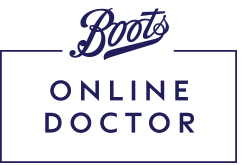Get contact dermatitis treatment to help manage your skin flare-up
FIND OUT MOREContact dermatitis is a type of eczema that's triggered by contact with certain substances
This reaction could be because of an allergy, or it could be because a protective layer of skin has been damaged by an irritant. Contact dermatitis can be uncomfortable, but it’s usually temporary and easy to treat.
What are the symptoms of contact dermatitis?
Symptoms can occur anywhere, but they are most common on your hands or face. Common symptoms include:
• Dry, cracked skin
• Itchiness
• Blistering
• Tenderness
• Redness on lighter skin
• Dark brown, purple or a grey colour on darker skin
What can cause contact dermatitis?
It’s important to discover the cause of contact dermatitis so that you can prevent further irritation and help the affected skin to recover.
Mild irritants can cause contact dermatitis by damaging the protective layer of your skin. Common causes include:
• Soaps and detergents
• Antiseptics and antibacterials
• Perfumes and cosmetics
• Nail polish remover
• Paints and varnishes
• Powders
• Solvents
• Disinfectants
• Machine oils
• Cement dust
• Dust and soil
Allergic reactions can also cause contact dermatitis. This occurs because your body’s immune system overreacts to a certain substance your skin comes into contact with. Common causes of allergic reactions include:
• Hair dyes and straighteners
• Jewellery and belt buckles made of nickel or cobalt
• Leather
• Latex rubber
• Cosmetic ingredients
• Citrus fruit peel
• Dyed clothing
• Strong glues
• Certain plants, including chrysanthemums, sunflowers, daffodils and tulips
• Medications or creams applied to the skin
How to treat contact dermatitis
Identifying and avoiding the cause of the condition may be enough for the affected area to heal on its own. Washing the affected area with mild soap and cold water, then applying a little moisturiser, can help the skin to recover.
If skin is slow to heal, or the affected area is causing irritation, applying an emollient cream like E45 or Diprobase can also help the skin to heal.
Emollients are available in lotions, creams and ointments. Ointments are the most effective for dry skin, while lotions and creams are better for treating inflamed areas of skin.
When to speak to a pharmacist or GP
If the affected skin is very uncomfortable, is spreading, or hasn't responded to other types of treatment, you should speak to your GP or a pharmacist about treatment options.
They may prescribe a corticosteroid cream which can be used to provide fast relief against inflammation.
Common corticosteroids are available to order from the Boots Online Doctor service*.
If you're having trouble identifying the cause, a doctor may also refer you to a dermatologist who can perform tests to help you discover what’s causing the irritation.










